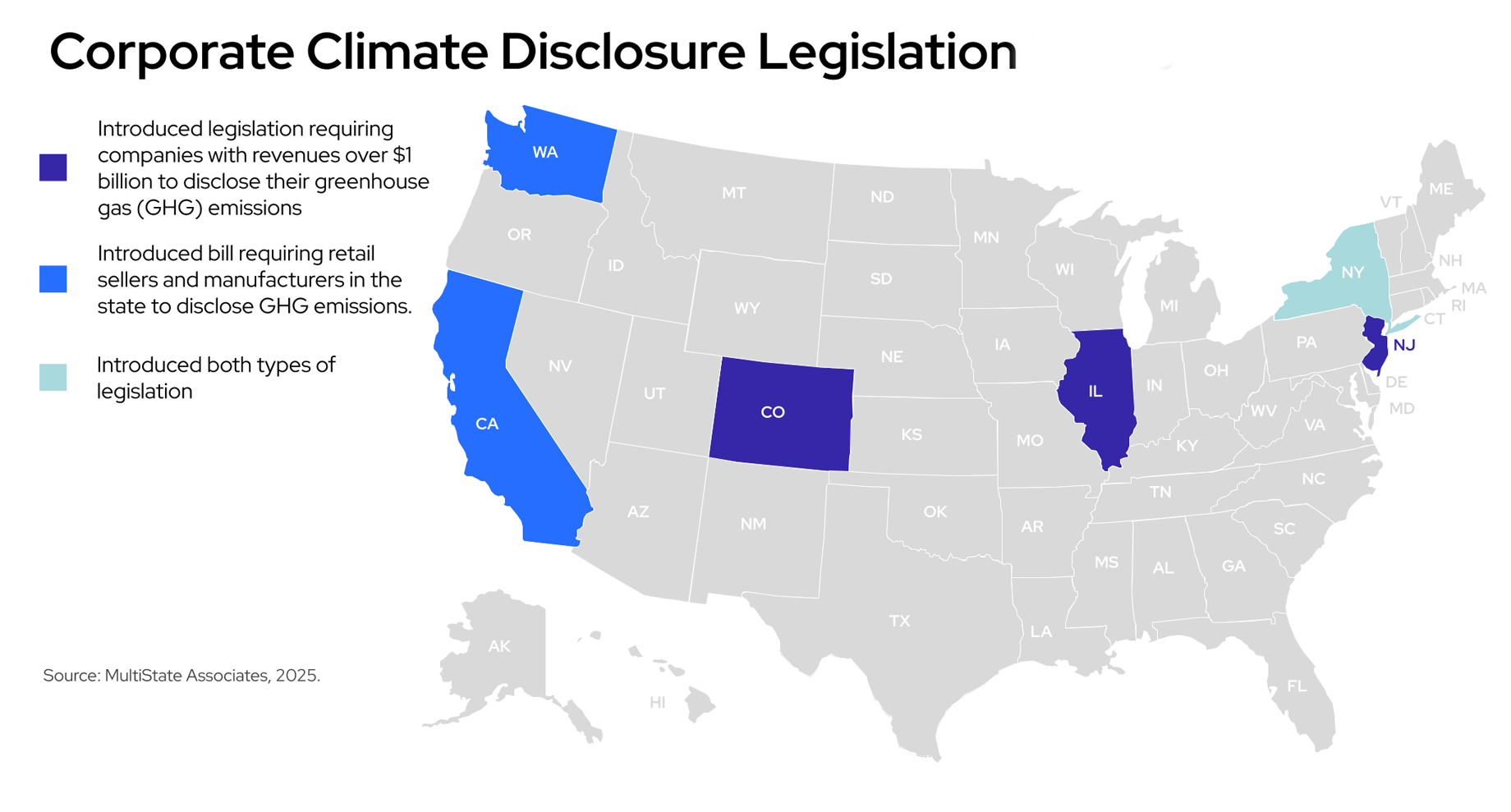Bolstered by President Trump’s election, climate policies have come under intense scrutiny in a number of states. In his first week in office, President Trump issued several executive orders aimed at reversing climate initiatives of the previous administration, including withdrawing from the Paris Agreement and suspending grants for EV charging stations along major highways. Many businesses have also adjusted their climate goals over the past year and effectively walked back pledges and involvement in corporate climate initiatives.
While the narrative on corporate sustainability has shifted, lawmakers in several states are doubling down on efforts to require large businesses to disclose their impact on the environment. Five bills introduced in Colorado (CO HB 1119), Illinois (IL HB 3673), New Jersey (NJ SB 4117) and New York (NY AB 4282 and SB 3456) require large businesses to disclose their direct and indirect greenhouse gas (GHG) emissions to the state.
These proposals follow the model of California’s landmark corporate climate disclosure law (CA SB 253) from 2023. The Climate Corporate Data Accountability (CCDA) Act requires public and private companies in the state with over $1 billion in annual revenues to report Scope 1, 2 and 3 GHG emissions annually to the California Air Resources Board.
The U.S. Chamber of Commerce and other business groups sued California over SB 253, arguing that the law violates the First Amendment by forcing businesses to engage in subjective speech. Last November, the U.S. District Court for the Central District of California denied the Chamber’s request for a summary judgment motion on the constitutionality of SB 253, allowing the case to continue into the discovery phase.
Meanwhile, three climate disclosure bills introduced in California (CA AB 405), New York (NY AB 4631) and Washington (WA HB 1107) specifically target the sustainability policies of fashion producers. These bills, generally, require fashion producers that make over $100 million in annual gross revenue to disclose their environmental policies, including greenhouse gas emissions.
It remains to be seen whether there will be more climate disclosure bills during this session or if this is part of a last-ditch effort by Democrats to codify net zero policies for businesses. Just this week, the Securities and Exchange Commission’s (SEC) Acting Chair, Mark Uyeda, announced plans to pause the commission’s defense of its climate disclosure rule issued under the Biden Administration, signaling that the SEC could ultimately rescind or change the rule. Following the effective halt of federal action on climate policy issues over the next several years, state legislatures will play a key role in showcasing what direction climate advocates will take on emission requirements.
